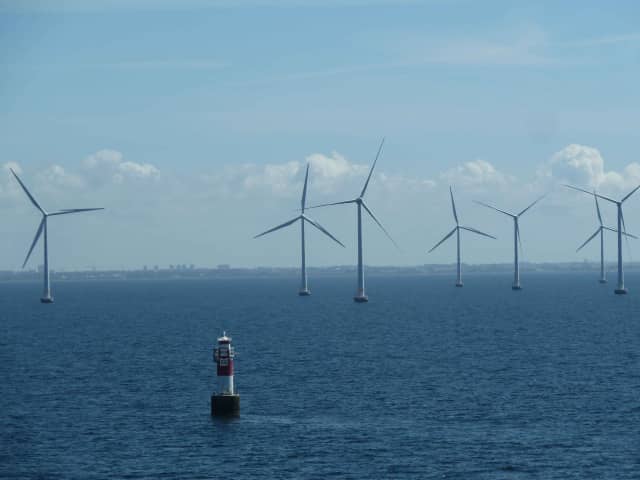Protection and sustainable use of the oeceans are the goals of the second research mission "sustain Mare" by the German Marine Research Alliance. A joint project led by the University of Oldenburg is part of the mission and also includes the Leibniz Centre for Tropical Marine Research (ZMT).
Climate change and unsustainable use impact seas and coasts harming nature and also affecting human well-being - after all part of our food comes from the sea or we spend our leisure time at the coast. Making the interaction between humans and the sea as sustainable as possible is one goal of the joint project CREATE led by biodiversity expert Prof. Dr Helmut Hillebrand from the University of Oldenburg.
It is one out of seven projects in the second research mission by the German Marine Research Alliance (DAM). Called "sustainMare" (Protection and Sustainable Use of Marine Spaces) it has just been officially launched. The Federal Ministry of Education and Research (BMBF) initially supports the project with about four million euros over an first period of three years, the whole mission is funded with about 25 million euros.
"Humans and the sea form a socio-ecological system," says Hillebrand, head of the Planktology working group at the Institute of Chemistry and Biology of the Marine Environment (ICBM) and director of the Helmholtz Institute for Functional Marine Biodiversity (HIFMB). "The different anthropogenic interventions in coastal marine ecosystems increasingly lead to conflicts of use."
Tourism or fertiliser use in agriculture, sediment dumping in coastal waters, shipping or the expansion of the renewable energy sector are only some areas of dispute. "In view of the diverse stressors that influence each other and often ounteract the goals of marine conservation, integrated concepts must be developed," Hillebrand emphasises.
Living Labs in the North and Baltic Sea: ZMT contributes expertise in ocean governance and institutional analysis
In order to find concrete solutions, the CREATE project brings together experts from the natural and social sciences, economics, engineering and society. They will establish three so-called living labs in the North Sea and Baltic Sea and pool their methods. The living labs will be located in the nature reserves Borkum Riffgrund and Sylt Outer Reef, both located in the German Bight, as well as the Eckernförde Bay in the Western Baltic. The working group Institutional and Behavioural Economics at ZMT will advise the North Sea living labs in ocean governance and institutional analysis.
"Living labs are a comparatively new approach in marine environmental science," says Dr Ute Jacob, the marine ecologist at HIFBM leading this side of the project. "The core idea is to develop measures for more sustainable use and effective protection in cooperation with all those affected and then jointly implement these in the specific regions."
In the framework of the CREATE project, this process begins with a systematic analysis of all stakeholders involved and is intended to result in scientifically-based recommendations for action. These will be available to politicians, business and society as a basis for future decisions.
In addition to researchers from the ICBM and the HIFMB, experts from 14 other partner institutions are involved in the project. These are the Universities of Kiel, Rostock and Greifswald, the Humboldt University of Berlin, the University of Veterinary Medicine Hannover, the Alfred Wegener Institute Helmholtz Centre for Polar and Marine Research, the Helmholtz Centres for Environmental Research (Leipzig) and Ocean Research (Kiel), the Leibniz Centre for Tropical Marine Research (ZMT) in Bremen, the Leibniz Institute for Baltic Sea Research in Warnemünde, the Max Planck Institute for Marine Microbiology in Bremen, Senckenberg am Meer (Wilhelmshaven), the Johann Heinrich von Thünen Institute in Bremerhaven and the German Development Institute.





